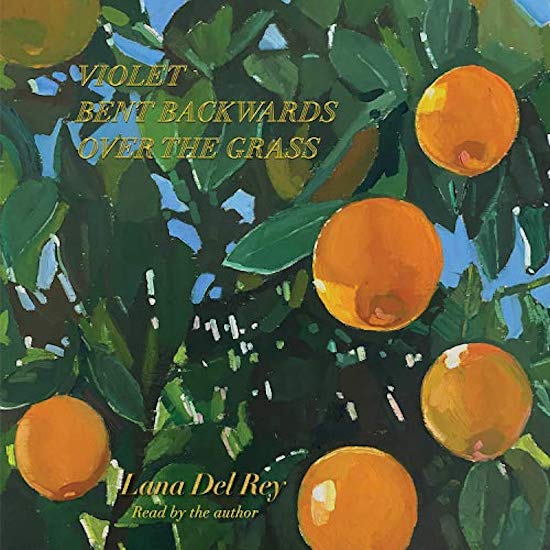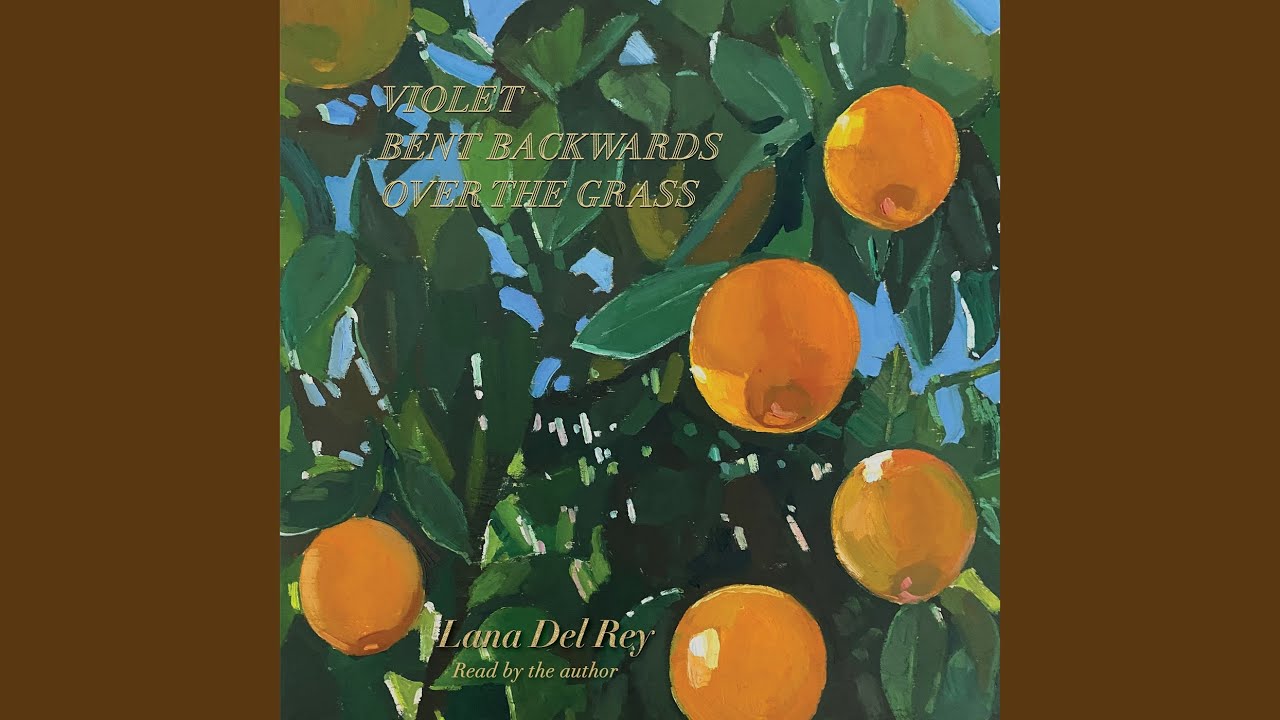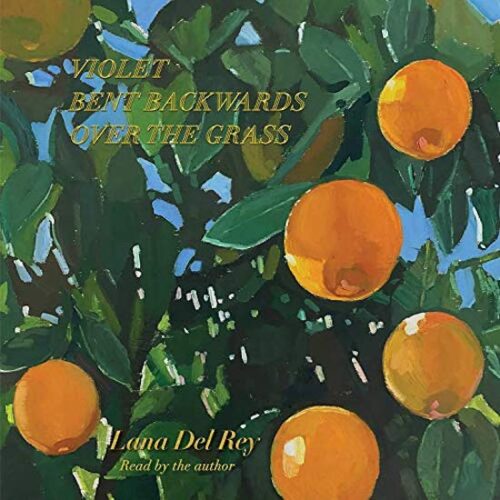Back in the heady days of 2012 when Lana Del Rey exploded from – seemingly – nowhere, one of my friends claimed she was a poet not a pop star. Early hits ‘Video Games’ and ‘Summertime Sadness’ are layered with clever lines hinting that Del Rey might be something more than that year’s hype act. As the years rolled on, and her climb to the top of the pop mountain became inevitable, we started to see Del Rey drop more and more literal references in her interviews and work. ‘Ride’ and ‘Tropico’, for instance, both featured longer spoken word pieces than previous releases.
Then, in 2018, Del Rey announced that she would be releasing a poetry book. The months rolled on and no book materialised. Near the end of 2019 she announced there would be a book titled Violet Bent Backwards Over the Grass and a spoken word album released in early 2020. Due to the pandemic, and her family being burgled over Christmas, the album was put back. Finally, Violet Bent Backwards Over the Grass was released as a digital audiobook, with half the proceeds going to the Navajo Water Project.
Violet Bent Backwards Over the Grass is enjoyable, in a vanity project sort of way. The poems are patchy though. Some show how broken and vulnerable (yet a sanitised version of vulnerability) Del Rey is. Lines like “I hear Dylan when I look at you, I can see it in invisible ink like a tattoo”, “She said my number one problem was that my field was untrusting. When asked what to do, she paused and said ‘Nothing’. Which sent me right into uncontrollable sobbing” and “You move like water sweet baby sweet waiter. Making the night smile to no one you cater. Silent wood worker from midnight till later. My lover my laughter my armour my maker” feel like they could have been lifted directly from any teenage diary or English homework assignment. The rhymes feel clunky and the feelings she is trying to get across are cluttered from trying to hard. However, the most cringeworthy line is uttered on ‘Salamander’: “I love you, but you don’t understand me, I’m a real poet! My life is my poetry, my love making is my legacy! My thoughts are about nothing, and beautiful, and for free”. However, when Del Rey manages to find her voice it works incredibly.
The standout moment of the album is the prose story ‘Sport Cruiser’. Here Del Rey uses a story about flying and sailing lessons as a metaphor for her insecurity. During the flying lesson, the instructor asked for a simple maneuver. Del Rey completed it, but slower that she intended. The instructor commented “You don’t trust yourself”. “I was horrified. Feeling as though I’d somehow been found out. Like he knew me,” she recounts. “How weak I was. Of course, he was only talking about my ability as a pilot in the sky. But I knew it was meant for me to hear those words”. After the lesson, Del Rey concludes that “Pilots aren’t like poets. They don’t make metaphors between life and the sky”. Hmmmm. Later in ‘Sport Cruiser’ she decides to book a sailing lesson at the Marina Del Rey (see what she did there). “I signed up for the class as ‘Elizabeth Grant’, And nobody blinked an eye. So, why was I so sure that when I walked into the tiny shack on Valley Way, someone would say? “You’re not a captain of a ship, or a master of the sky!”.
Ultimately ‘Sport Cruiser’ is a good yarn that leans a bit to heavily on obvious metaphors. It is enjoyable though and the backing music by long-time collaborator Jack Antonoff really emphasises the key points of the story. Throughout Violet Bent Backwards Over the Grass, Antonoff does a great job of hiding in plain sight. At times you don’t realise what he’s doing. Which is effectively his job, to make the words sound grander but not to draw attention away from them. The moment you notice him, its all you can concentrate on. It shows the limitations of Del Rey’s poetry.
For a moment let’s remove the quality of the poems and concentrate on Del Rey’s performance. Her delivery is measured, slowly drawing you in with each word she utters. Throughout she never gets much above a whisper. As Jake “The Snake” Roberts once said, “If a man has enough power, he can speak softly, and everyone will listen.” After thirty seconds of ‘LA Who Am I to Love You?’ I’m in her power. The poem is a love letter to Los Angeles. The line “Let me be a real wife to you. Girlfriend, lover, mother, friend. I adore you” sums it all up and is one of the best on the album.
After listening to Violet Bent Backwards Over the Grass we still don’t have a real idea of who Del Rey is. In fairness I don’t think Lizzie Grant does either. But this has always been one of the strongest aspects of the character. What we do know, however, is that Violet Bent Backwards Over the Grass is one of the most fully formed albums she has put out. Yes, some of the rhymes are clunky and a tad juvenile, but there is a sort of elegance to them. Violet Bent Backwards Over the Grass is the album I’ve always wanted Del Rey to make. It’s brave, in a naïve way, and filled with some of glorious subtle backing tracks. This is an album that will appear to the hardcore members of the Cult of Del Rey, but there are plenty of highs for casual fans. Del Rey ends the album with the line “People love my stories. People love visions”. And she’s right. They’ll love this too.




